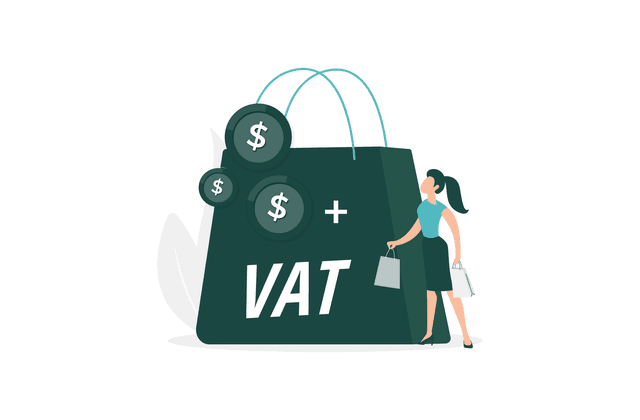
The Ultimate Guide for UAE SMEs to Avoid Common VAT Compliance Errors
By kitaab
The UAE has set a goal of growth and development, driven by a clear vision and long-term vision. The establishment of a politically stable, socially progressive, and economically robust society. As a part of this, the UAE implemented the Value Added Tax (VAT) in 2018. This move aimed to diversify the country's revenue sources, reduce reliance on oil-based income, and allocate funds towards public infrastructure and the welfare of its citizens.
What's Kitaab?
Kitaab provides finance, accounting and tax services for freelancers, start-ups and businesses in the service sector
Learn moreSince its introduction, VAT has had a transformative impact on both consumers and businesses, reshaping the economic landscape of the UAE. However, understanding and complying with VAT regulations can be complex, especially for SMEs. To navigate this terrain effectively, it's crucial to grasp the different VAT categories that apply to various products and services in the UAE.
VAT in the UAE is categorized into three primary types:
Exempt Products and Services:
These are completely exempt from VAT and are not included in VAT calculation limits.
Zero-Rated Products and Services:
A 0% VAT is applied, but these are still included in VAT calculation limits.
Standard-Rated Products and Services: These are subject to a 5% VAT, which is the standard rate in the UAE
Understanding these categories is essential, but it’s equally important to know the frequent mistakes SMEs often make in VAT compliance.
However, such frequent errors can lead to fines, operational disruptions, and financial setbacks. In this comprehensive guide, we will explore these pitfalls and provide actionable advice to help your business stay compliant.
1. Insufficient Record Keeping
Problem: One of the most frequent mistakes SMEs make is failing to maintain adequate records as required by the Federal Tax Authority (FTA). These records include invoices, receipts, and transaction histories, which must be kept for at least five years.
Solution: Implement a robust record-keeping system that automatically tracks and stores all relevant documents. Consider using cloud-based accounting software that is compliant with FTA standards. Regular audits of your records can also help ensure nothing is overlooked.
2. Calculation Errors in VAT
Problem: Miscalculations in VAT can occur due to misunderstanding the tax rate applicable to different transactions or incorrect data entry. These errors can result in either overpaying or underpaying VAT, both of which have consequences.
Solution: Invest in reliable accounting software that automates VAT calculations. Regular training for your accounting team on the latest VAT regulations can also reduce the likelihood of errors.
3. Improper Credit Notes and Tax Invoices
Problem: SMEs often fail to issue proper credit notes and tax invoices, leading to compliance issues. Incorrect or incomplete invoices can attract penalties from the FTA.
Solution: Ensure that your invoicing system complies with FTA requirements. This includes issuing invoices with all the mandatory details like the supplier's TRN, invoice number, and VAT amount. Review your credit note process to ensure it aligns with legal standards.
4. Inadequate Accounting Systems
Problem: An inadequate or outdated accounting system can result in multiple VAT compliance issues, including errors in filing and reporting.
Solution: Upgrade to an accounting system that is fully compliant with UAE VAT laws. The system should be capable of handling complex transactions and generating accurate VAT returns. Integration with other business systems can further streamline the process.
5. Missed VAT Filing Deadlines
Problem: Missing VAT filing deadlines is a common mistake that can lead to hefty fines and legal complications. The UAE has strict deadlines for VAT returns, and failure to meet these deadlines is considered a serious offense.
Solution: Set up reminders and automate the filing process where possible. Regularly check the FTA portal for updates on deadlines and compliance requirements. Appointing a dedicated team member to manage VAT filings can also help ensure deadlines are never missed.
6. Mistimed VAT Registration & Deregistration
Problem: Some SMEs either delay VAT registration beyond the required threshold or deregister without fulfilling the necessary conditions. Both actions can result in penalties.
Solution: Monitor your taxable supplies regularly to determine when VAT registration is required. Similarly, understand the conditions under which deregistration is permitted, and plan accordingly. Consulting with a VAT expert can provide clarity on when and how to register or deregister.
7. Misapplication of VAT Laws and Provisions
Problem: Incorrect interpretation and application of VAT laws can lead to significant compliance issues. For example, applying the wrong VAT rate or misunderstanding exempt and zero-rated supplies.
Solution: Stay updated on VAT laws through regular training and consultation with VAT professionals. Regularly review your VAT practices to ensure they align with current regulations. Consider hiring a VAT consultant to audit your VAT processes and provide expert advice.
8. Inappropriate Responses to FTA Notices
Problem: Failing to respond appropriately to FTA notices, such as audit requests or inquiries, can lead to fines and further scrutiny.
Solution: Have a process in place for promptly and accurately responding to any FTA correspondence. Ensure that your records and documentation are always up-to-date to facilitate quick responses. It’s advisable to have legal counsel review any communication with the FTA to ensure compliance.
Navigating VAT Compliance with Confidence
VAT compliance is a critical aspect of operating a business in the UAE, particularly for SMEs. The consequences of non-compliance can be severe, including fines, operational disruptions, and reputational damage. However, by understanding mistakes and implementing the solutions discussed in this guide, your business can navigate VAT compliance with confidence.
At Kitaab.ai, we understand the complexities of VAT compliance in the UAE. Our expert team is here to help you avoid these common pitfalls and ensure your business remains compliant with all FTA regulations. Whether it’s setting up an efficient record-keeping system, automating VAT calculations, or providing expert advice, we’ve got you covered.